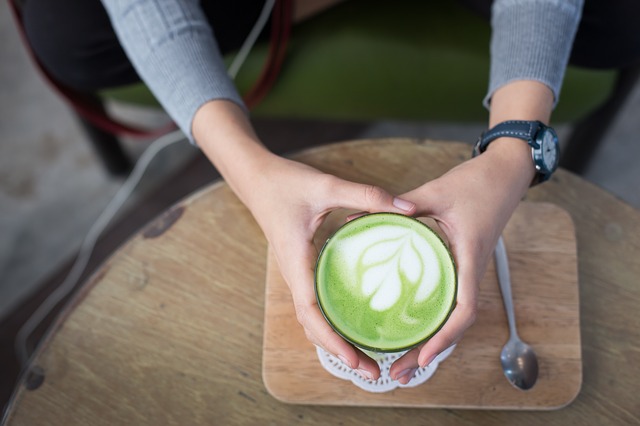When combined with a well-rounded diet and healthy lifestyle, drinking matcha has been shown to help keep your heart healthy and protect against disease. Studies also show that green tea and matcha can decrease several heart disease risk factors.
Studies of matcha point to a variety of benefits for your overall health, which show that it can help protect the liver, promote heart health, and might even aid in weight loss.
Matcha has several health benefits including, these:
- It’s high in antioxidants
- May help protect your liver
- It can boost brain function
- May help prevent cancer
- May promote heart health
- It’s very easy to prepare
So, what is matcha exactly? Matcha is a fine powder of bright green tea that plays a traditional part in the Japanese tea ceremony. Recently in the United States, matcha started appearing in various drinks and desserts as a new trend. Similar to green tea, matcha comes from a plant called camellia sinensis. Matcha has a unique nutrient profile since it is grown differently. Farmers grow matcha by covering their tea plants for several weeks to promote chlorophyll production which gives the plant a brighter green color and boosts the amino acid content of the plant. When the tea leaves are harvested, the leaves are grounded up into a fine powder called matcha. Since matcha contains the nutrients from the entire tea leaf, this results in a greater amount of caffeine and antioxidants compared to green tea.
Matcha Facts:
- Matcha tastes like an intense brewed green tea. High quality matcha has a bright green color and a poor quality matcha has a dull green color. High quality matcha can be used to make a traditional matcha drink and lower quality matcha can be used for baking.
- Matcha powder can be added to smoothies, baked foods such as muffins, cupcakes, cookies, brownies or even mixed with milk or tea to make a matcha latte or matcha tea.
- Matcha will not burn more calories or fat and does not detoxify naturally in the body.
- The antioxidants in matcha called catechins have been shown in research to improve blood pressure and possibly improve total/LDL cholesterol levels.
- Besides being an excellent source of antioxidants, green tea and matcha are also packed with vitamins A, D, E, C, B, B5, H, and K, manganese, and other beneficial minerals such as zinc, chromium, and selenium.
- Add matcha to your daily routine to enjoy the taste or drink as an alternative to coffee.
Studies have revealed a variety of health benefits associated with matcha that range from helping to maintain a healthy weight to decreasing the risk of heart disease. And, best of all, the matcha tea is simple to prepare, so you can easily incorporate it into your diet.
If you think you need to make some changes to your diet, and are considering adding some healthy options, including matcha, reach out to one of the nutritionists at Behavioral Nutrition. They can help you make healthy choices that can make a difference in your diet and overall health.



